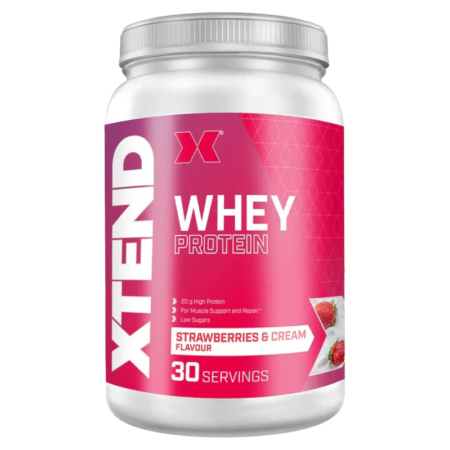Carbohydrates
Carbohydrates are a vital energy source for our bodies, functioning as the primary fuel for our brains and muscles. Found in a variety of foods from whole grains to fruits and vegetables, they play an essential role in both weight management and overall health. This section will explore what carbohydrates are and why they’re crucial to your diet.
Including nutrient-rich carbs in your diet can improve your post-workout recovery and provide the sustained energy needed to power through your day. Whether you’re an athlete or a student, understanding the types of carbohydrates and how they work can significantly enhance your dietary habits.
What Are Carbohydrates?
What exactly are carbohydrates, and why are they often discussed in discussions about health and fitness? As organic compounds, carbohydrates are broken down inside our bodies to generate glucose, which serves as a pivotal fuel for exercise and daily activities. This section explains their classification and the role they play in our diets.
Carbohydrates are categorized into simple and complex types, each affecting the body differently. Simple carbs are quickly absorbed and provide immediate energy, making them ideal before short, intense workouts. Complex carbs, however, provide a slower and more steady release of energy, which is perfect for prolonged endurance activities and stable blood sugar levels.
Benefits of Carbohydrates
Carbohydrates provide numerous health benefits when included as part of a balanced diet.
- Key energy source for all bodily functions and physical activity.
- Support effective post-workout recovery.
- Essential for brain function and maintaining mental clarity.
- Promote digestive health through dietary fiber.
- Help regulate blood sugar levels and prevent energy spikes and dips.
- Assist in the management of weight by promoting satiety.
- Reduce the risk of cardiovascular diseases by lowering lipid levels.
- Support overall health with essential vitamins, minerals, and fibers.
Types of Carbohydrate Supplements
With the rising popularity of fitness and health supplements, carbohydrate supplements have become a go-to for many looking to optimize their energy levels and recovery times. These supplements often come in various forms, including powders and gels, tailored to meet different dietary needs and fitness goals. Each form of supplement provides specific benefits, whether you’re a competitive athlete or a casual gym-goer.
Why might someone choose a supplement over natural sources? Supplements offer a convenient and concentrated form of carbohydrates that can be easily consumed around workout times, especially for post-workout recovery. They are designed to be digested quickly, allowing for rapid glycogen replenishment. Furthermore, the ability to tailor the intake according to specific exercise intensity or duration can be a significant advantage over whole food sources that might require longer digestion times.
- Powders: Easily mixed with liquids, these are perfect for a quick pre-workout energy boost or a post-exercise recovery shake.
- Gels: Convenient and portable, gels are ideal for endurance athletes who need a fast-acting energy source during long sessions.
- Bars: Often combined with proteins and fats, bars provide a balanced source of slow-releasing energy, suitable for extended activities.
- Chewables: These are great for athletes who prefer not to drink their carbohydrates and are looking for a tasty, easy-to-consume option during or after workouts.
The Difference Between Simple And Complex Carbohydrates
Understanding the distinction between simple and complex carbohydrates is crucial for managing your diet effectively. Simple carbohydrates consist of short-chain sugar molecules that provide quick energy spikes. These are rapidly absorbed into the bloodstream, causing a swift increase in blood sugar levels that can be ideal for immediate energy needs but may lead to quick declines in energy later. In contrast, complex carbohydrates are made up of long-chain sugar molecules that ensure a steady energy supply, thanks to their slow and consistent release of glucose into your system.
- Simple carbs: Found in fruits, dairy products, and sweetened snacks, these carbohydrates are quickly digested, leading to a fast but fleeting boost in energy and mood.
- Complex carbs: Abundant in foods like whole grains, legumes, and starchy vegetables, they take longer to digest, which helps maintain more stable blood sugar levels and provides a lasting energy source.
This fundamental difference not only affects how we feel but also influences our overall health and energy management. Incorporating a balance of both types of carbohydrates can help in optimizing energy levels throughout the day, preventing the common “sugar crash” associated with high intake of simple sugars and supporting a healthier, more sustained energy lifestyle.
Why Carbohydrates Are Important For Athletes
Athletes particularly benefit from a carbohydrate-rich diet as it enhances their fuel for exercise and aids in efficient recovery. Carbs are stored in the muscles as glycogen, which is the muscle’s primary fuel source during high-intensity activities.
But how much carbohydrate should an athlete consume? The recommended intake can vary based on the intensity and duration of the exercise. A general guideline is that high-performance athletes might need up to 10 grams of carbohydrates per kilogram of body weight during intense training periods.
Potential Side Effects of Carb Supplements
While carbohydrate supplements are beneficial, they can also have side effects, especially if consumed in excess. Some common issues include bloating, digestive discomfort, and spikes in blood sugar levels, which may lead to energy crashes. Overconsumption of carbohydrate supplements might also disrupt normal metabolic processes, potentially leading to longer-term health issues such as insulin sensitivity or even diabetes in susceptible individuals.
Additionally, depending on the source and quality of the supplements, there could be other additives or preservatives that may cause allergic reactions or other side effects. It’s important for consumers to be aware of these potential risks and manage their intake accordingly, ensuring that they do not rely solely on supplements for their carbohydrate needs but maintain a balanced diet.
Are Carbohydrate Supplements Safe?
Carbohydrate supplements are generally safe when used appropriately. However, it is essential to choose products from reputable manufacturers and consult with a healthcare provider, especially for those with underlying health conditions or those on a restricted diet. Ensuring product quality and suitability for your specific health needs can help mitigate any potential risks associated with their use.
Moreover, individuals should consider their total daily carbohydrate intake from all sources to avoid excessive consumption, which can lead to negative health effects. Proper usage, combined with regular monitoring of one’s diet and health status, can make carbohydrate supplements a valuable addition to an active lifestyle, supporting both energy production and overall wellness.















